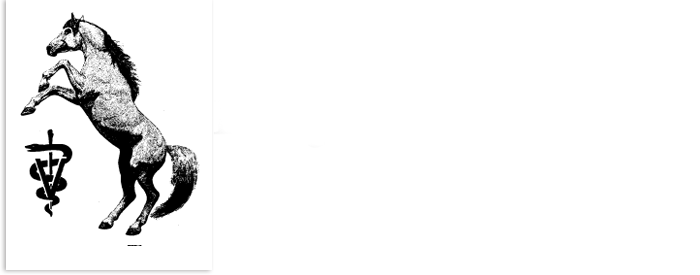Veterinary Advisory for Winter Horse Show Competitors
No one wants to go to a horse show only to have their horse get sick there or on the way. For Hunter/Jumper competitors as well as competitors in other disciplines getting ready to go a winter circuit there are a number of veterinary considerations. The HITS Thermal and HITS Arizona circuits have implemented health requirements. The Northern Winter Classics Horse Shows do not have specific requirements, but some of the same considerations apply. The HITS shows are implementing these in response to prior problems at shows here in California and elsewhere.
Not specified by the show are considerations anytime you ship long distance and go into a high stress environment with many horses housed together. Long distance shipping is associated with risks of respiratory infections, impaction colic’s and, if crossing state lines, carries legal requirements.
Respiratory infections are associated with long distance travel as well as being in compact housing and the stress of horse shows. Over 70% of severe pneumonia cases in horses had recently traveled for long distances just prior to becoming infected. Shipping is highly stressful and may lower a horse’s resistance to viral diseases. For this reason, making sure your horse is well vaccinated for Influenza and Rhinopneumonitis is critically important. Bacterial infection secondary to viral infections quickly follow. For this reason I often recommend giving a shot of the antibiotic Excede, which last for 4 days, just prior to departure.
Another way to reduce risk of developing viral and bacterial infections during transport and at the show is by using ZYLEXIS to boost your horse’s immune system. ZYLEXISis inactivated (killed) Parapox Ovis Virus Immunomodulator that has demonstrated efficacy and safety in stimulating the horse’s immune response. It has been shown to reduce the incidence of equine upper respiratory disease associated with EHV-1 and/or EHV-4 infections (Rhinopneumonitis aka Equine Herpes Virus). The boost in immunity is helpful but short lived. Intramuscular injections are given on day 0,2 and 9. Another injection is given every 7 days after that if you are participating in multiple weeks at the show.
Another issue associated in long distance travel is impaction colic’s. Impaction colic is caused by manure drying out and forming a blockage in the large intestine. The reason this problem occurs in horses being transported is thought to be a decreased water intake during the trip. To address this problem, here are three suggestions. During the trip offer water to your horse every three hours. Horses may significantly decrease their water intake if the water tastes differently from what they drink at home. Therefore, for a few days before your trip put a small amount of vinegar in your horse’s water. Then while you travel and during the first few days at your new location continue to add a little vinegar. This will make all the water taste relatively the same. Finally, if your trip is more than 10 hours long, I would suggest having me come out to administer a gallon of mineral oil via a tube just prior to departure. The mineral oil will help keep the manure soft decreasing the chances of an impaction.
If you are crossing state lines you will need to have a health certificate. This certifies that your horse is not bringing any contagious disease into the new state. To obtain a health certificate you need to have your me examine your horse. I will then issue the certificate. However if entering or leaving California you horse must have a recent negative test for EIA – Equine Infectious Anemia – a Coggins Test. The health certificate is only good for 30 days so the examination needs to be performed close to your departure time.
The chances are the most horses will not have any problems on any particular trip. The problem is that a few horses will have problems. The strategies above are designed to minimize the risk of your horse becoming one of those few.
Here are the horse show specific requirements.
HITS Thermal requires a:
1.) Negative Coggins – this blood test is for Equine Infectious Anima (EIA). Must be within 3 months.
2.) A Health Certificate which is a paper signed by your veterinarian stating that the horse has been examined and has no indication of infections disease. Important Reminder - A health certificate cannot be signed until the paper work for negative Coggins Test is returned from the lab. This can take 7-10 days. The test itself does not take long to run, but getting the paper from my hands, to the lab and back to me can take that long without involving overnight mailing. So if you require a negative Coggins Test, be sure to have the blood drawn and the test run well before a health certificate needs to be written.
3.) Proof of Vaccination: – You must have vaccinated your horse:
Within 6 months (180 days) of arriving for the following:
1. Eastern and Western Equine Encephalomyelitis
2. Rabies
3. Tetanus
4. West Nile Virus
Within 3 months (90 days) of arriving for the following:
5. Equine Influenza
6. EHV 1 and EHV 4 (Rhinopneumonitis)
4.) Event Participation Declaration: This is a signed form by the owner or agent or trainer verifying that the horse has been healthy with no sign of infectious disease and has not had a fever above 102°F within 72 hours (3 days) of arrival. The form you need to use is available in the prize list or at HitsShows.com
HITS Arizona
Required:
1.) Event Participation Declaration (see above)
When coming from California
2.) Negative Coggins
3.) Health Certificate
Suggested in 2013 and required starting in 2014
4.) Vaccines as listed above in for the HITS Thermal show
Northern Winter Classics Horse Shows
There are no health care requirements. However I strongly recommend following the vaccine recommendations of the HITS Horse shows.
Lectures Available
If you would like to arrange a lecture at your barn, please contact our office.

